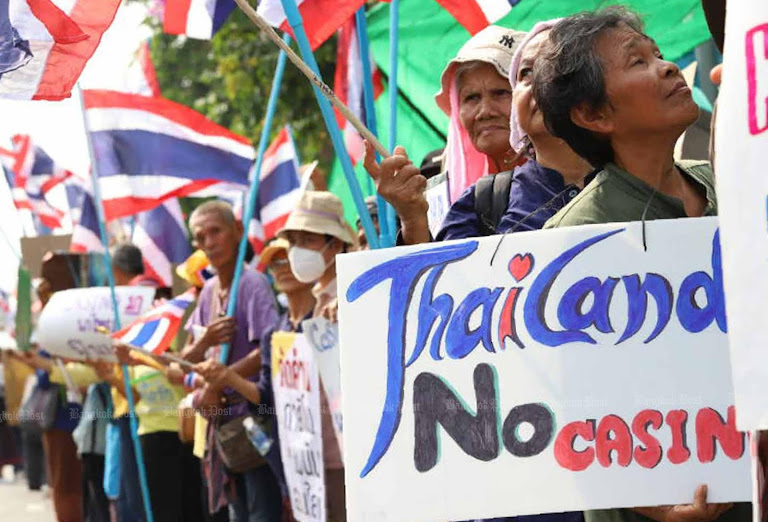Is Thailand Gambling Away Democracy? Casino Scheme Sparks Global Worry
Casino push exposes a global trend of governments prioritizing revenue over citizen well-being, risking democratic values.

Is the future of democracy a slow, steady creep toward legalized gambling, effectively outsourcing governance to the vagaries of chance? That sounds apocalyptic, but consider Thailand, where a Senate special committee is pressing Prime Minister Paetongtarn Shinawatra for details on a proposed “integrated entertainment complex” — a euphemism we all understand. The request itself is procedural, yet the situation reveals a deeper truth about the modern state: its increasing reliance on industries that thrive on individual vulnerability, and the Faustian bargains it makes in the process.
The Bangkok Post reports the committee wants clarity on everything from revenue projections to land expropriation, holding Ms. Shinawatra accountable for the nuts and bolts. Senator Veerapun Suvannamai’s admission is particularly damning: private sector actors possess data on revenue estimates and operations while the government pleads ignorance. This isn’t just a procedural hiccup; it suggests a power imbalance where private interests are better informed about the public good than the public servants themselves.
“The committee does not compel the premier to appear and has no intention of invoking legal powers to summon her,” he said. “It is not a problem if the premier declines. What we expect is a response to the questions that are submitted alongside the invitation letter.”
But this isn’t just about a casino in Thailand. It’s a symptom of a global trend. In the wake of the 2008 financial crisis, and again after COVID-19, governments from the United States (with its lottery-funded education systems) to Japan (aggressively courting casino resorts) have turned to gambling as a convenient, if ethically dubious, source of revenue. This isn’t just pragmatism; it’s a fundamental shift in how the state perceives its role.
The real question here is about governance itself. Is the state prioritizing the long-term well-being of its citizens, or is it simply chasing short-term budgetary fixes, regardless of the social consequences? The evidence is clear: gambling addiction devastates lives, leading to financial ruin, broken families, and mental health crises. Dr. Rachel Volberg’s research, for example, has consistently demonstrated a correlation between increased casino accessibility and rising rates of problem gambling, even when controlling for other socioeconomic factors. These aren’t abstract statistics; they represent real human suffering.
The seductive appeal of casino revenue can easily override sound policymaking, creating a perverse incentive structure where the state becomes dependent on the very industry it should be regulating. Add in the potential for corruption, money laundering, and organized crime, and the “easy money” becomes a net negative for society. This is textbook regulatory capture, but with a uniquely insidious twist: the captured are not just regulators, but entire governments. It’s the state becoming addicted alongside its citizens.
Then there’s the political dimension. The Shinawatra family’s long and controversial history in Thai politics, marked by accusations of populism and conflicts of interest, adds another layer of complexity. This casino proposal will inevitably be viewed through the lens of patronage, raising questions about who truly benefits and whether the public interest is being served or cleverly manipulated. We must remember the politician seeks only to retain and extend power by providing the illusion of a solution.
The questions directed at Prime Minister Shinawatra—the necessary number of Thai visitors to sustain these casinos, the potential impact on existing tourism, and the safeguards against money laundering—are important, but they don’t address the core issue: What kind of society are we actively creating? Are we willing to sacrifice social well-being for the ephemeral promise of economic growth, or can we imagine a more sustainable and ethical path forward? It may seem remarkable that this debate in Bangkok is illuminating a global reckoning, but Thailand’s current trajectory is forcing us to confront fundamental trade-offs and our collective ethical values.









